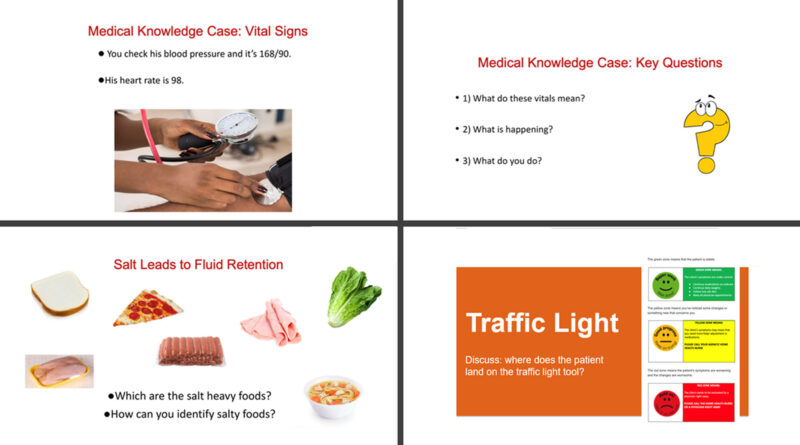Development and Piloting of a Community-Partnered Heart Failure Training Course for Home Health Care Workers
Circulation: Cardiovascular Quality and Outcomes, Volume 15, Issue 11, Page e009150, November 1, 2022.
Background:Despite their unique contributions to heart failure (HF) care, home healthcare workers (HHWs) have unmet educational needs and many lack HF caregiving self-efficacy. To address this, we used a community-partnered approach to develop and pilot a HF training course for HHWs.Methods:We partnered with the Training and Employment Fund, a benefit fund of the largest healthcare union in the United States, to develop a 2-hour virtual HF training course that met HHWs’ job-specific needs. English and Spanish-speaking HHWs interested in HF training, with access to Zoom, were eligible. We used a mixed methods design with pre/postsurveys and semi-structured interviews to evaluate the course: (a) feasibility, (b) acceptability, and (c) effectiveness (change in knowledge [Dutch Heart Failure Knowledge Scale range 0−15] and caregiving self-efficacy [HF Caregiver Self-efficacy Scale range 0−100]).Results:Of the 210 HHWs approached, 100 were eligible and agreed, and 70 enrolled. Of them, 53 (employed by 15 different home care agencies) participated. Posttraining data showed significant improvements (pretraining mean [SD] versus posttraining mean [SD];Pvalue) in HF knowledge (11.21 [1.90] versus 12.21 [1.85];P=0.0000) and HF caregiving self-efficacy (75.21 [16.57] versus 82.29 [16.49];P=0.0017); the greatest gains occurred among those with the lowest pre-training scores. Participants found the course engaging, technically feasible, and highly relevant to their scope of care.Conclusions:We developed and piloted the first HF training course for HHWs, which was feasible, acceptable, and improved their HF knowledge and caregiving self-efficacy. Our findings warrant scalability to the workforce at large with a train-the-trainer model.
Source link


